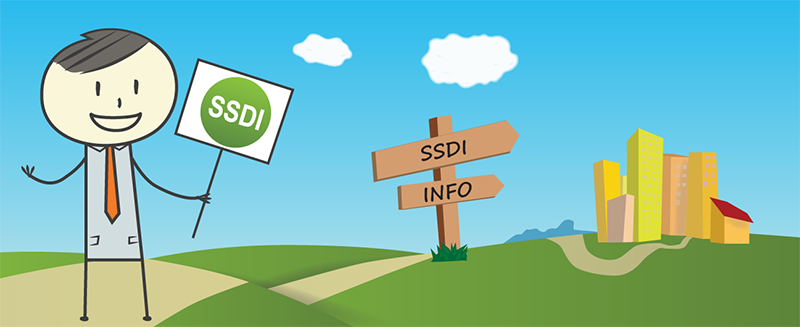You Asked, We Answer! Work Incentives and SSDI

On Wednesday, September 27, more than 300 people attended our Work Incentive Seminar Event (WISE) webinar, Ticket to Work: Work Incentives for People who Receive Social Security Disability Insurance (SSDI). During the webinar, our guests from Social Security talked about SSDI Work Incentives, the benefits of work, and how to open and use a my Social Security account.
Our attendees asked many great questions, and today we're sharing answers to the top questions. Read on to learn more about Work Incentives, then head to the WISE archives to watch past webinars and learn more.
What is the Trial Work Period?
The Trial Work Period (TWP) is a Work Incentive for people who receive Social Security Disability Insurance (SSDI) that allows you to test your ability to work for at least 9 months. During this timeframe, you will receive full SSDI benefits no matter how much money you earn from work — as long as your work activity is reported to Social Security and you have a disabling impairment.
Social Security counts a month as a TWP month if earnings are more than $840 (in 2017) OR if you work more than 80 hours in self-employment. The work does not have to be for the same employer or in consecutive months. Once you work all 9 months within a 60-month period, your TWP is complete. If you completed 9 months, but not in a 60-month period, months that you worked outside of that time do not count toward your TWP.
To find out how many TWP months you have used in the last 60 months, you can use a report that Social Security produces called the Benefits Planning Query (BPQY). You can request a free BPQY report from Social Security or authorize your Employment Network or benefits counselor to request it. These reports verify the type of benefits you receive and the work incentives you have used. They also indicate what Social Security has on file for reported wages or earnings from self-employment.
When should I start reporting my wages or self-employment hours
to Social Security?
Are there also Work Incentives for people who receive Supplemental Security Income (SSI)?
Yes! While our September WISE webinar highlighted Work Incentives for SSDI recipients, the August webinar focused on Work Incentives for people who receive SSI. You can view the webinar and transcript in our archive.
If you receive SSDI, you need to report any changes in work and earnings when:
- Work starts or stops
- Duties, hours, or pay changes
- You start or stop paying for disability-related items or services needed for work
Federal law requires Social Security to issue a receipt when they receive a report of work. Keep this receipt and a copy of the information you provide to Social Security in a safe place.
Never assume that Social Security knows about your work or that another agency will report for you. Wage reporting is your responsibility, and it will help you to avoid overpayments.
What is Substantial Gainful Activity (SGA)?
Social Security uses the term "substantial gainful activity" (SGA) to describe a level of work activity and earnings and to help determine your eligibility for SSDI. Work is "substantial" if it involves doing significant physical or mental activities or a combination of both. Work activity does not need to be performed on a full-time basis to be substantial — part-time work may also be SGA. You meet SGA (for 2017) if you earn $1,170 per month if you are not blind, and $1,950 if you are blind. SGA doesn't affect your benefits during your TWP because your earnings are unlimited during this time.
Once you've completed the 9-month TWP, you'll enter a 36-month Extended Period of Eligibility (EPE). During this timeframe, you receive full benefit payments for months where gross earnings are below SGA level. Some Work Incentives, like Impairment-Related Work Expenses (IRWE), may be deducted from your total earnings when Social Security considers if your earnings are SGA. Any month your earnings fall below SGA, you'll receive full benefits as long as you still have your disabling condition.
What is Ticket to Work?
Social Security's Ticket to Work (Ticket) program supports career development for people ages 18 through 64 who receive Social Security disability benefits (SSI or SSDI) and want to work.
The Ticket program is free and voluntary. It helps people with disabilities move toward financial independence and connects them with the services and support they need to succeed in the workforce.
How can I learn more?
Each month, our WISE webinars share resources and tips to help people with disabilities find work and financial success. WISE webinars can help you stay informed about Ticket program information, hear about new and existing resources that may help as you consider work, and learn more about specific employment topics. Our next WISE webinar, Achieving Financial Independence with Ticket to Work and an ABLE Account, will take place on October 25, 3-4:30 p.m. ET. Register and attend today!
To learn more about the Ticket program, visit www.ssa.gov/work. You can also call the Ticket to Work Help Line at 866-968-7842 or 866-833-2967 (TTY) Monday through Friday, 8 a.m. to 8 p.m. ET. Ask a representative to send you a list of service providers or find providers on your own with the Ticket program Find Help tool.